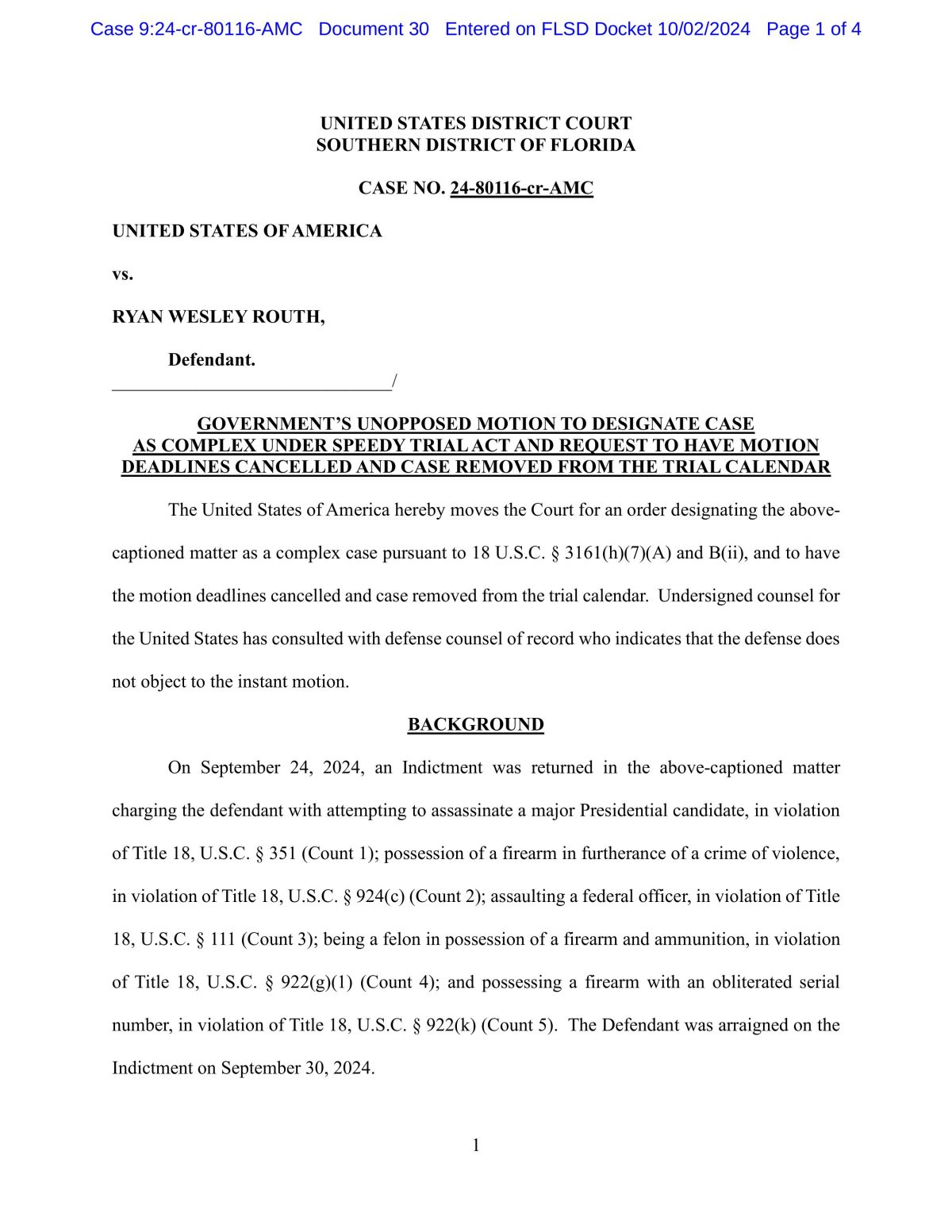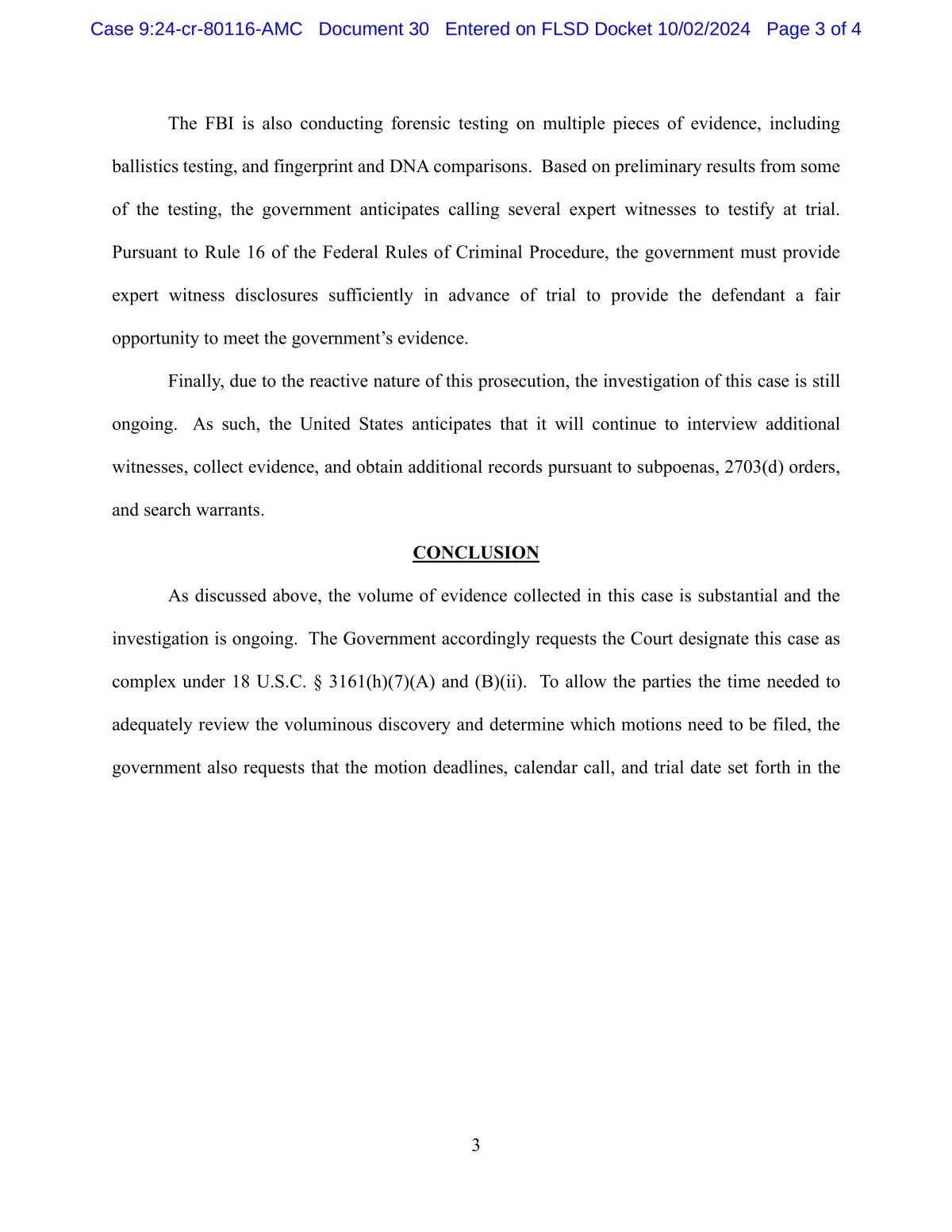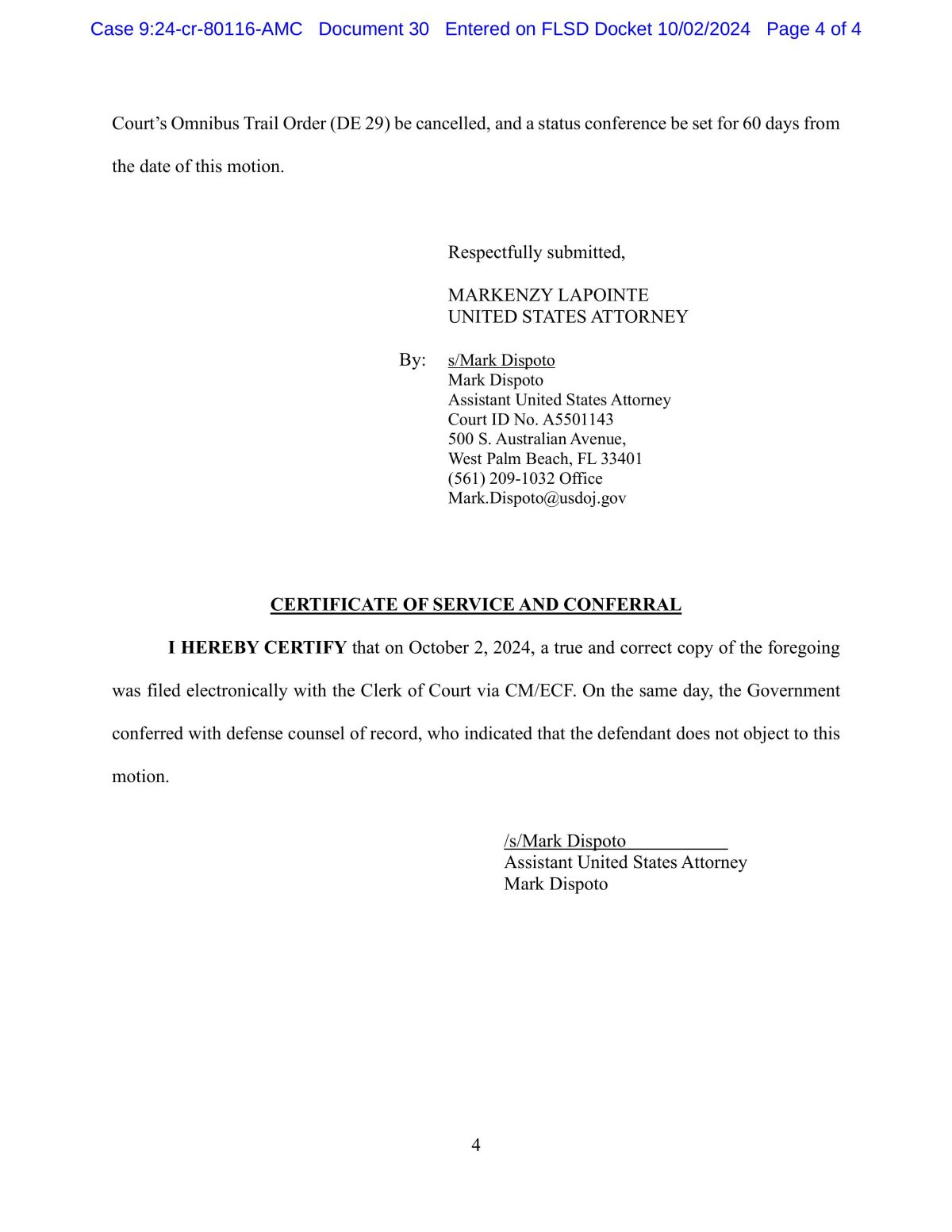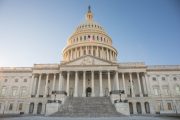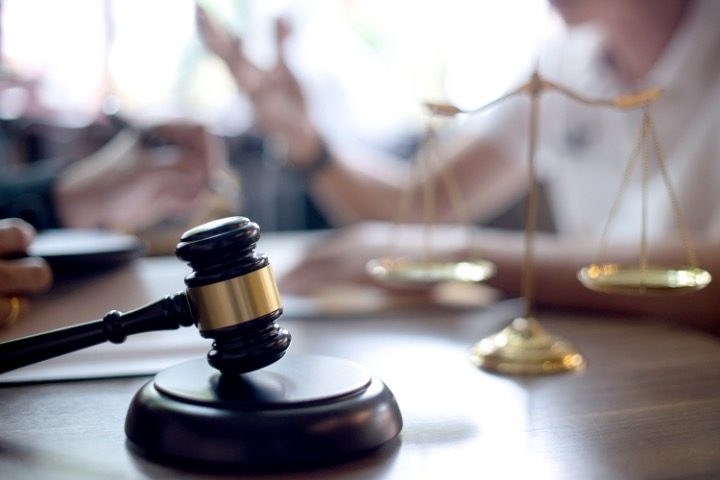
Federal prosecutors have asked the judge in their case against Ryan Wesley Routh, accused in the attempted assassination of former President Donald Trump, for an indefinite delay in the would-be assassin’s trial.
The reason is the complexity of the case, which permits a judge to waive the speedy-trial provisions of federal law.
The filing in the U.S. District for the Southern District of Florida says the wide-ranging probe in the attempt spans the nation and to Hawaii, and that more than a dozen search warrants have been executed.
Attempt and Indictment
A federal grand jury indicted Routh on September 24 for attempting to assassinate Trump at the GOP presidential candidate’s Trump International Golf Club in West Palm Beach, Florida.
Routh arrived at the course in the wee hours of September 15 and waited for Trump for some 12 hours. Trump was between the fifth and sixth holes when a Secret Service agent spotted Routh’s SKS rifle “poking out of a tree line.”
The agent fired and Routh fled the scene in a Nissan Xterra. Martin County sheriff’s deputies arrested him on Interstate 95 North.
Routh advocated Trump’s assassination in a book called Ukraine’s Unwinnable War. His record of some 100 arrests includes a felony conviction for three-hour stand-off with cops in Greensboro, North Carolina in 2002.
A handwritten letter contained in a box and seized by federal agents contained a confession of the attempt. “This was an assassination attempt on Donald Trump but I am so sorry I failed you,” Routh wrote, federal prosecutors allege:
I tried my best and gave it all the gumption I could muster. It is up to you now to finish the job; and I will offer $150,000 to whomever can complete the job.
The five-count indictment includes one count of attempting to assassinate a major political candidate, three firearms charges, and one assault charge.
Too Complex for Speedy Trial
Despite what seems to be iron-clad evidence needed for a conviction, prosecutors now say the case must be delayed. Federal law allows a delay when a case is “so unusual or complex, due to the number of defendants, the nature of the prosecution, or the existence of novel questions of fact or law, that it is unreasonable to expect adequate preparation for pretrial proceedings or for the trial itself within the time limits established,” prosecutors argue.
Authorities say they have
interviewed hundreds of witnesses … executed 13 search warrants in Florida, Hawaii, and North Carolina, and seized hundreds of items of evidence, including multiple electronic devices. Over one hundred subpoena returns are also still pending.
Prosecutors must review “thousands of videos,” the motion argues, and the volume of electronic material measures about 4,000 terabytes, or 4 million gigabytes.
The FBI is still investigating, the motion argues, and is “conducting forensic testing on multiple pieces of evidence, including ballistics testing, and fingerprint and DNA comparisons.” The government will call “several” expert witnesses at trial. The motion appears below.
How Did Routh Know Trump Would Play Golf?
An unanswered question is how Routh — whose son Oran was arrested on child porn charges the day before the grand jury indicted his father — knew Trump would play golf and when. One reason: Acting Secret Service Director Ron Rowe’s explanation of why the agency hadn’t secured the golf course’s perimeter.
After the first attempt on Trump’s life in Butler, Pennsylvania, two months before the events at this golf club, Rowe explained at a news conference, the agency added more protection to Trump, pursuant to orders from President Joe Biden.
Those extra protective measures, including a countersniper team and countersurveillance, “were in place” that Sunday afternoon, Rowe continued. But Trump’s round of golf was an “an off-the-record movement, meaning it was not on the former president’s official schedule.”
The agent who fired at Routh was “supporting the front edge of the agency’s layered approach to protection,” Rowe said. When the agent spotted the rifle, he opened fire.
Thus did Rowe’s explanation raise more questions than it answered. Most notably, how did the would-be assassin know where Trump would be and about what time the former president would be there?
Routh’s cellphone activity showed that he landed at the course a little after 2 a.m. Sunday, and lay in ambuscade for 12 hours.
Yet no one knew he was there, and his assassination nest was just 400 yards from Trump near the sixth hole green.
Only Two Possibilities
The question yields only two answers.
First answer: Routh got lucky. He simply assumed Trump would play golf on the afternoon of September 15, and that he would play the Trump International Golf Club in West Palm Beach, as opposed to the Trump National Jupiter just about 18 miles away, or the Trump National Doral in Miami.
Routh also guessed that Trump would play at about 1:30 p.m., as opposed to playing an early morning or early evening round.
Second answer: Routh knew when and where Trump would play. That is a seeming impossibility if, as Rowe said, the outing was “an off-the-record movement, meaning it was not on the former president’s official schedule.”
H/T: Maine Wire, Fox News
